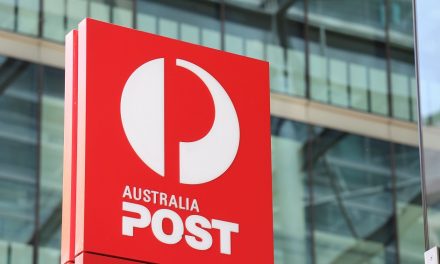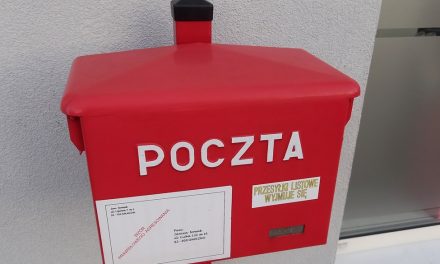
Do recent parcel carrier options deliver?(FedEx, United Parcel Service, Parcel Select)(Statistical Data Included)
CATALOG AGE 1st September 2001
DO RECENT PARCEL CARRIER OPTIONS DELIVER?(FEDEX, UNITED PARCEL SERVICE, PARCEL SELECT)(STATISTICAL DATA INCLUDED)
After years of being held hostage by United Parcel Service's virtual monopoly on package delivery, shippers are looking to several relatively new competitors for rescue. But while Federal Express's FedEx Home Delivery ground service and the U.S. Postal Service's Parcel Select are options, UPS still retains supremacy.
To be sure, UPS's stranglehold on the standard parcel delivery catalog market has loosened during the past five years. Credit–or blame–goes primarily to its annual rate increases, which have averaged 4%-5%. Among the mailers participating in CATALOG AGE's 2001 Benchmark Report on Operations (see the March 15 issue), UPS was the standard-delivery shipper of choice for 50%. But 78% of the respondents to the survey five years earlier had named UPS their primary carrier.
"UPS is still far and away the giant in the field," says John Lappegaard, president/CEO of Sperryville, VA-based apparel and home goods mailer Faith Mountain Co., which uses UPS for 75% of its parcel deliveries. "But for the first time in quite a while, more competitors are sniffing around the edge of the market. So it makes sense for us to look around too."
FedEx Home Delivery: a `me too' service?
FedEx is the standard-delivery carrier of choice among just 3% of participants in the 2001 Benchmark Report on Operations. And, in fact, FedEx Home Delivery, which launched in March 2000, isn't targeting the catalog market at this time.
"Our marketing effort is aimed at customers trying to achieve certain ends, as opposed to vertical marketing," says Rodger Marticke, FedEx Ground's executive vice president. In other words, the carrier is pursuing bulk shippers as a whole rather than the catalog market specifically. A division of FedEx Ground (formerly Pittsburgh-based Roadway Package System, which Federal Express bought in 1998), FedEx Home Delivery is scheduled to expand its residential coverage of the U.S. to 80% this month, and nearly 100% by September 2002, Marticke says.
While FedEx's lack of marketing may be one reason more catalogers haven't signed on with the service, and its incomplete penetration of U.S. residences (only 70% as of August) another, there's a third likely reason: FedEx Home Delivery isn't all that different from UPS. Its base prices are deliberately the same as UPS ground home delivery prices. FedEx Home Delivery's pricing structure even copies UPS's $1.50 rural surcharge and other upcharges.
"Everything with FedEx Home Delivery seems aimed just to match UPS–a me-too thing," says Jeff Kline, president of Memphis-based Kline Management Consulting and the former operations director for Nordstrom and Genesis Direct. "FedEx seems to be just a brown package in purple-and-black clothing."
But FedEx Home Delivery is promoting that it can offer better service than UPS. Marticke says that according to FedEx research, 26% of FedEx Home Delivery packages are delivered faster than comparable-distance UPS deliveries; 12% of UPS deliveries are quicker than those of FedEx Home Delivery; and 62% are the same. UPS spokesperson Susan Rosenberg doesn't dispute the FedEx findings, but she doesn't offer any UPS-researched figures either.
Then there's the greater flexibility of FedEx Home Delivery, Marticke says. The FedEx ground service makes deliveries Mondays through Saturdays, whereas UPS ground delivers Mondays through Fridays only; FedEx allows customers to make appointments for home deliveries within a one-hour window; and customers can request evening deliveries. But the latter two services come with significant surcharges: $15 for special appointments, and $7 for evening deliveries.
Bear Creek Corp., the $395 million parent company of the Harry and David (food gifts) and Jackson & Perkins (horticultural) catalogs, was part of a pilot group test for FedEx Home Delivery last year. Bear Creek ships most packages via USPS Parcel Select, but "we're monitoring FedEx Home Delivery's performance very closely," says Don Cato, senior vice president/general manager, customer operations. "We could go in any number of directions, although we'll still be heavily weighted toward the USPS as our preferred carrier."
Parcel Select gains ground
The Postal Service's Parcel Select, the drop-shipping bulk parcel service launched in 1999, is gaining ground among catalogers. For the first three quarters of the agency's fiscal 2001, volume for the budget-priced bulk parcel service was up 7% from the comparable period of 2000.
With Parcel Select, mailers use zone-skippers to drop-ship packages into as many destination delivery units (DDUs) as possible, for the greatest postal discounts. The remaining packages are delivered into sectional center facilities (SCFs) or bulk mail centers (BMCs). The USPS then handles delivery from the DDUs, SCFs, and BMCs.
Jim Cochrane, product manager of expedited package services for the USPS, says that more catalogers have turned to Parcel Select as zone-skippers have gained greater ability to drop-ship packages to more DDUs. DDU penetration, he says, has increased from 3% two years ago to 26% today. When shipped into DDUs, packages usually get delivered the following day.
One drawback to Parcel Select is less accountability. Packages can be traced only while they're in the hands of the zone-skippers. The Postal Service does not offer tracking, so once the packages have been delivered to the USPS facility, they cannot be traced. The USPS does offer delivery confirmation, in which recipients sign for the packages.
Then there's the matter of service standards among the zone-skippers. As Kline says, "It's too early to see how well they are doing on the service aspects of it. Catalogers know they can save money, but I don't know that they can get the service they want."
Although Medford, OR-based Bear Creek has found that delivery via Parcel Select can take up to a week, "it saves us money," Cato says. Bear Creek works closely with its with zone-skippers, which include R.R. Donnelley Logistics (the former CTC Distribution Direct), to make sure that no packages wind up languishing in BMCs or SCFs. "We're able to get most of our packages to DDUs, which is important for us, because we're shipping perishable products," Cato says.
As for UPS, the Atlanta-based carrier is offering low-priced contracts to a number of catalogers to keep its customer base. Spokesperson Rosenberg says that the carrier builds an incentive program around "all shipping characteristics over a period of time. The vast majority of our contracts have trended toward longer-term, three- to five-year arrangements."
Leander, TX-based Super Circuits, a $10 million-plus cataloger of electronics components, benefits from such a program. In the mid- to late-1990s it used Airborne Express and Roadway. "Then UPS came to us in 1999 and said if we were to bring all our packages to them, we'd get a sweet deal," says founder/president/CEO Steve Klindworth. "Still, we're always checking things out to make sure we're getting the best deal."
At least one source says UPS may be looking to solidify more catalog business over the next year and beyond, as its Teamsters contract expires in fall 2002. But Rosenberg says "there's no truth" to reports that UPS is locking catalogers into contracts that would keep them from leaving should the Teamsters strike next year, as they did in 1997. "We've only been selling longer-term contracts to give us the ability to bundle more shipping solutions for them," Rosenberg says.
Page 5;Volume 18;Issue 10
THIS IS THE FULL TEXT: COPYRIGHT 2001 PRIMEDIA Business Magazines & M
COPYRIGHT 2001 Gale Group
©2001 Information Access Company.












